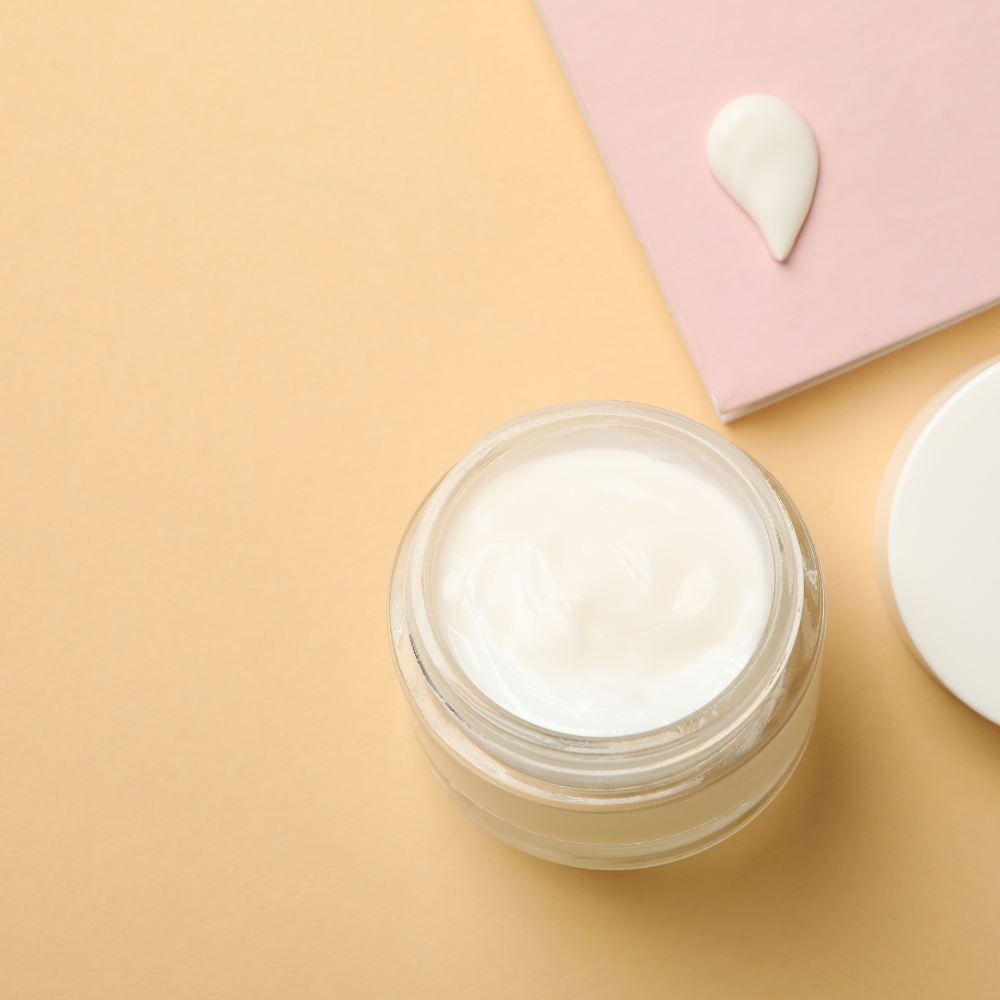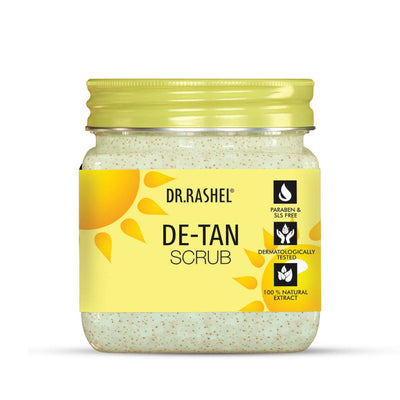
Table of Contents
- What is Night Cream?
- Benefits of Night Cream
- Ingredients to Look for in Night Creams
- How to Use Night Cream
- FAQ's
Our skin changes its work and rhythm at different times of the day. The skin is in defense mode during the day and protects the skin against environmental pollution and damage. While at night, it goes into repair mode and undos the damage caused during the day. Using a hydrating skincare product at night is necessary to help the skin with the reparation process. Now the question arises, what should I apply on my face at night, a regular moisturizer or a night cream?
We're here to answer your questions and tell you all about night creams with this blog. We’ll cover the benefits, beneficial ingredients and usage of night creams, so don't miss out and read till the end!
What is Night Cream?
Since your skin starts its regeneration process at night while you sleep, it needs a skincare product that’ll assist in the restoration work. Night creams are heavy and thick moisturizers that hydrate and nourish the skin overnight. They are formulated to help the skin in its night time rejuvenation process and also have a high concentration of active ingredients that help with various skin concerns. Night Creams are richer and have more emollient power so that it can work effectively throughout the night.
Benefits of night cream
When we sleep our skin tends to lose moisture or produce excess oil. There are many benefits of applying moisturizer at night and few of them are listed below:
Enhances skin repair process
Away from environmental damage, your skin starts shedding dead skin cells and regenerates new skin at night. Night cream provides aid in this process by delivering necessary nutrients and moisture to support the repair work.
Provides the skin with hydration
Night creams are rich and heavy which deeply hydrate the skin and prevent the loss of moisture while you sleep. Use of night cream can boost moisture and assists in getting rid of dehydrated skin and cell regeneration.
Gives the skin targeted treatment
Your skin deals with a lot of damage during the day which can cause many skin concerns. Skin clear night cream is infused with special active ingredients that help deal with acne, dark spots, pigmentation and more.
Restores the skin barrier
The skin's natural protective barrier can weaken over time due to factors like environmental pollution and aging. Night creams have repairing ingredients that strengthen the protective barrier and make it resilient.

Ingredients to look for in Night Creams
Antioxidants
Antioxidants such as Vitamin C, Vitamin E or Green Tea Extract help fight free radicals and damage caused by sun exposure. It also brightens and evens out skin tone. Antioxidants prevent premature aging, increase blood flow and make you look more youthful.
Ceramides
Ceramides are natural fats that lock in moisture in the skin and help maintain the skin's natural barrier. This helps protect the skin from deeper damage. Ceramide levels decrease with age making skin dehydrated and irritated.
Hyaluronic Acid
Hyaluronic acid is a hydrating ingredient that draws in moisture to the skin and retains moisture in the skin. It reduces moisture loss and smoothens the skin. It also makes your skin plump, soft and thoroughly moisturized.
Niacinamide
Niacinamide is a versatile ingredient that helps with many skin concerns. It prevents excess oil production, reduces the appearance of pores and improves skin texture. Niacinamide also helps maintain the skin barrier, retain moisture and fade acne scars.
Peptides
Peptides are amino acids that are popular in anti-aging skincare because they help restore the skin. Peptides boost collagen production, increase skin firmness and elasticity and reduce wrinkles and fine lines.
Retinol
Retinol is a famous anti-aging ingredient that helps boost collagen production and accelerate cell turnover. It reduces wrinkles and fine lines and makes skin look youthful. Retinol also assists in fading acne scars, dark spots and improving skin texture.
How to use Night Cream
Skin cells get renewed while you sleep and night creams significantly aid the skin in this process. So using them in the correct way is essential to get the desired results. Here’s how to apply night cream:

Step 1: Cleanse
After a long day, the first thing you should do is clean your skin. Use a gentle cleanser or face wash to remove any and all dirt and impurities.
Step 2: Tone
Use a toner to remove any remaining particles of dirt on your face, prep it and balance the pH level of your skin.
Step 3: Serum
Serums target specific skin issues and need time to absorb into the skin to work effectively. Thus applying it before night cream will allow quick absorption.
Step 4: Night Cream
Now take a pea-sized amount of night cream and apply it on your face. Make sure to cover all areas including forehead, cheeks, chin and nose.
Step 5: Massage
Gently massage the cream into your skin in an upward motion for 1-2 minutes. This will help stimulate blood circulation and enhance absorption.
FAQ's
What are the uses of night cream?
Night creams help hydrate, nourish and repair your skin while you sleep through the night. They assist in the skin's natural renewal process and reduce fine lines, wrinkles and other signs of aging.
Can we use night cream in day?
Night creams are designed for evening use but you can use a night cream during the day if necessary. It is better to stick to light moisturizers during the day.
Which night cream is best for dry skin?
A night cream infused with hyaluronic acid or ceramides is best for dry skin because it helps draw moisture in the skin and keep skin soft and hydrated.
At what age should I use night cream?
You can start using night creams as early as your mid 20’s because as you get older, your skin starts losing its self-regeneration strength. Thus night creams support the renewal process and prevent premature aging.
Written by Madiha Patel







